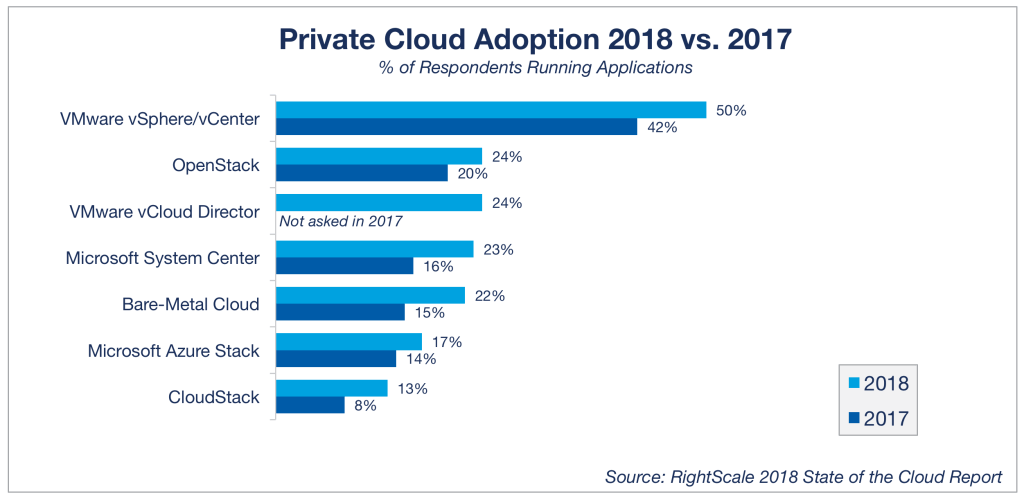What are the benefits of a private cloud?
What advantages does a private cloud have? The answer is still unknown for many users. You might need a private cloud right now and you may not even know it. There are many factors that influence the decision to hire a private cloud service. Everything will depend on the needs of your company and the analysis you do on your infrastructure to check if it meets the requirements of computing and services for your customers. Take a look at these benefits of the private cloud and make a decision.

What is a private cloud?
Public cloud is probably the best-known type of cloud since it is used quite frequently. When you choose to lease a public cloud, all computational resources are divided among multiple users according to their needs.
On the other hand, the private cloud offers an environment of high security and privacy because it is only managed by a single client or organization.
The third option is a hybrid cloud that combines a public cloud and private cloud by allowing data and applications to be shared between them.
Private clouds, like the other two models, operate in a virtualized environment using underlying physical computational resources. But the fact that a private cloud is totally controlled by you, allows you to have more privacy in the use of your data and applications.
To make it clear, let’s see the main differences between a private cloud and a public one.
| Features | Public Cloud | Private Cloud |
|---|---|---|
| Restrictions | Resources are shared among multiple users or organizations. They use the same physical infrastructure. | All resources are dedicated to a single client or organization. |
| Capacity | In the public cloud, computational resources are not unlimited although the demand for them can be combined with the supply to guarantee allocation. In the public cloud, several organizations share computing, storage, and network resources. | All resources are assigned to a single organization and the demand for those resources can be adjusted to the supply to ensure an efficient allocation. |
| Cost | Low cost is something that characterizes the public cloud because resources are shared and consumed from any location. | The cost of a private cloud is relatively high because it is tailored directly to a client’s needs. The expenses of working of a private cloud are considered as operating costs that can be predicted during a specific period. |
| Control | Although the user has control over the resources used in the public cloud, there are some restrictions that can only be controlled by the hosting provider. | Because the private cloud is designed for a single organization, the configuration and administration of resources have no restrictions unlike what happens with a public cloud. |
| Reliability | The public cloud provides shared redundancy capabilities. | The high availability of resources provides dedicated redundancy since all the resources can be assigned in case of a failure. |
| Security | Organizations can go selectively when deciding what workloads operate in the public cloud due to its shareable nature. | The physical and logical segmentation of resources protects the infrastructure in all its layers, which ensures better capacity for different workloads. |
Private an public cloud benefits comparison
Now that we have compared the pros and cons of a public and a private cloud, let’s see in detail the main benefits of a private cloud.
Private cloud benefits
Although the benefits of a public and private cloud are very similar, the central point that makes them different is the privacy and total control of the resources given by the physical hardware layer provided by a private cloud.
Control and flexibility
A private cloud can be designed to meet the specific needs of the organization, complying with its performance, scaling and architecture parameters.
The infrastructure of a private cloud can be located in the physical facilities of the company, but those clients that want to reduce costs in infrastructure can also host their cloud in a data center of an external service provider.
Private cloud services are always maintained in a private network with dedicated software and hardware. This provides flexibility to adapt resources and control them.
Performance and scalability
A private cloud can abstract a large number of computing resources and provide controlled self-service access.
Thanks to these conditions, a private cloud offers a greater infrastructure capacity to satisfy large demands for storage and computation. In this way, the management of resources is more efficient according to the needs of the user. In addition, resources are not physically limited thanks to virtualization.
Thanks to the dedicated environment of the private cloud, you can manage much better the scalability and utilization of the resources, self-service capacity, and elasticity while maintaining the isolation of single-tenant servers.
Security
The security of a private cloud relies on not sharing resources with other organizations. So it provides greater control and security in the management of the infrastructure.
However, this control does not mean that security, data protection, or compliance is guaranteed. The security of a private cloud depends on the protection protocols applied by the organization to reduce risks, errors and security breaches.
It should be noted that neither the private nor the public cloud guarantee total security. What makes a private cloud a bit more secure than a public one is that you can design your own security policies and make them as stronger as you want to protect your private cloud.
Generally, a good security policy is based on protocol encryption and a disaster recovery plan. Both are the central points to improve the protection of the infrastructure.
Do you know that...?
In Master Internet, we design the private cloud according to the special needs of each customer. We have more than 10 years of experience in operating our own public cluster and the background of two professional datacentres.
To whom a private cloud is a good option?
How to know if a private cloud is what you need for your business? It all depends on the circumstances of your company, however, a series of questions can help you find the answer:
- Does your organization belong to sectors such as finance, government or healthcare services and uses sensitive data that requires special treatment with significant levels of security?
- The growth of your business remains constant over time as well as the increase in computational demand?
- Do you need to comply with industrial or governmental regulations that limit the use of shared resources?
- Can you increase your budget to manage a private cloud because your priority is the use of dedicated resources?
- Does your organization have different infrastructure needs that can only be met by controlling your own resources?
If all your answers were “yes”, guess what? You need a private cloud. Give the first step to keep your company improving and take a look at our equally scalable and flexible, but only yours, private cloud.

Private cloud adoption increased to 75 percent in 2018 from 72 percent in 2017.



